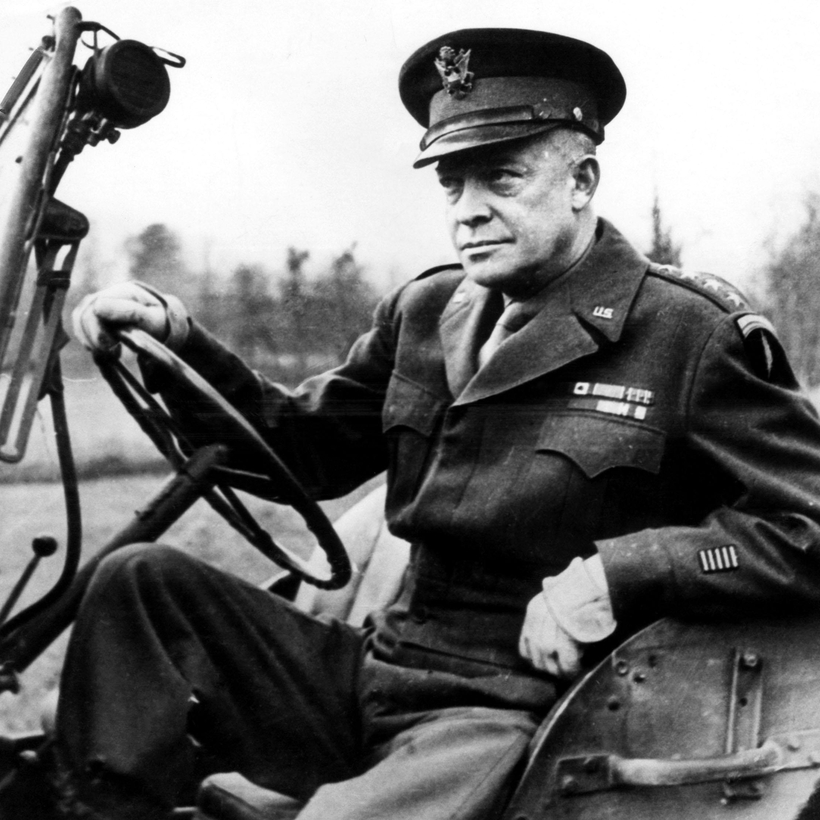The Light of Battle: Eisenhower, D-Day, and the Birth of the American Superpower by Michel Paradis
“How’s that British girl?” was probably not the question Dwight Eisenhower wanted to hear from Franklin Roosevelt as the army general and the president flew to a conference of Allied leaders in Cairo in November 1943.
F.D.R. had asked to sit next to Eisenhower’s attractive driver, Kay Summersby, at dinner, shamelessly flirting with the 34-year-old. The next day, as the presidential party drove along the picturesque North African coast, F.D.R. instructed Summersby, “That’s an awfully nice place. Could you pull up here, child, for our little picnic?” The president had heard the rumors about Ike and Summersby. So had Ike’s wife, Mamie, who told her husband not to bother to come home until the war was over.


